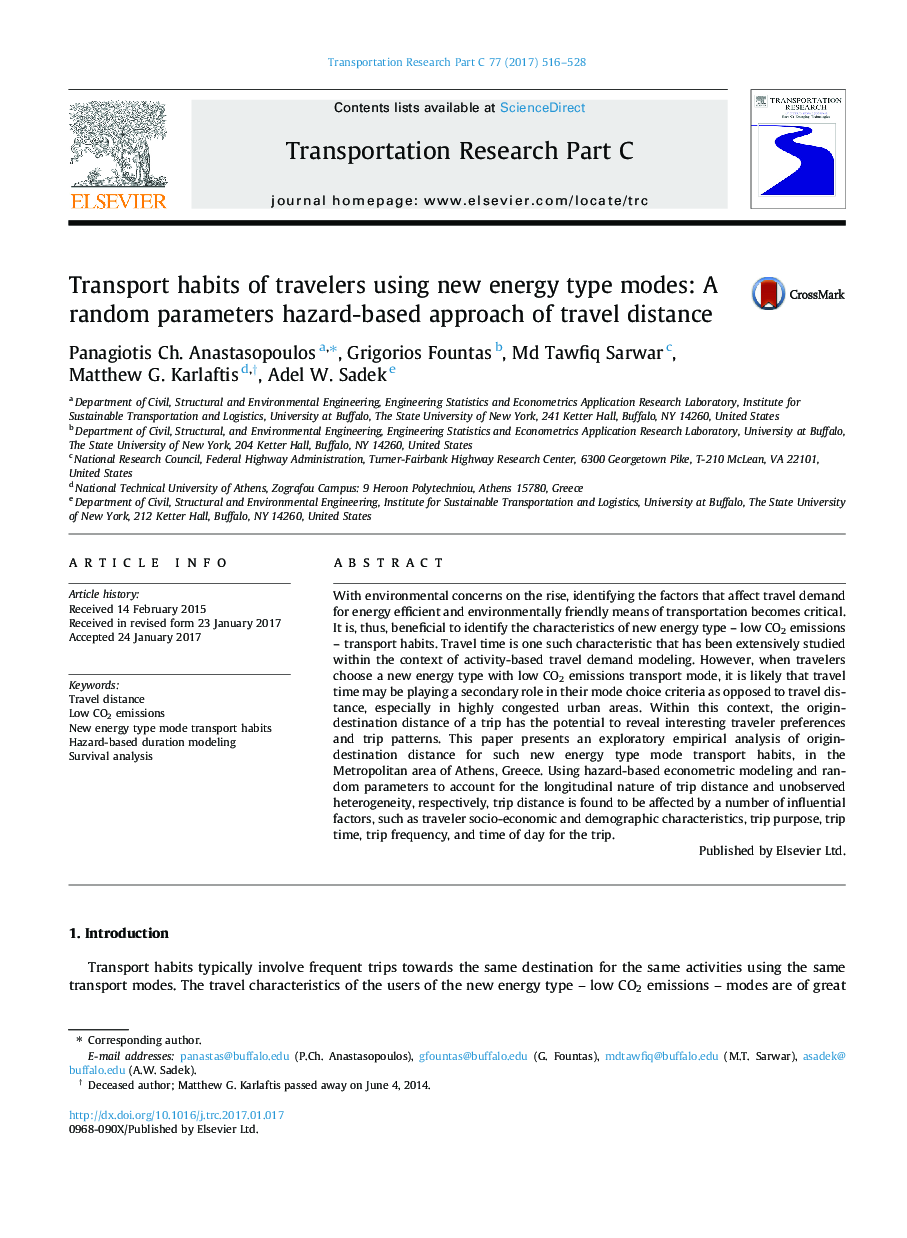| Article ID | Journal | Published Year | Pages | File Type |
|---|---|---|---|---|
| 4968645 | Transportation Research Part C: Emerging Technologies | 2017 | 13 Pages |
Abstract
With environmental concerns on the rise, identifying the factors that affect travel demand for energy efficient and environmentally friendly means of transportation becomes critical. It is, thus, beneficial to identify the characteristics of new energy type - low CO2 emissions - transport habits. Travel time is one such characteristic that has been extensively studied within the context of activity-based travel demand modeling. However, when travelers choose a new energy type with low CO2 emissions transport mode, it is likely that travel time may be playing a secondary role in their mode choice criteria as opposed to travel distance, especially in highly congested urban areas. Within this context, the origin-destination distance of a trip has the potential to reveal interesting traveler preferences and trip patterns. This paper presents an exploratory empirical analysis of origin-destination distance for such new energy type mode transport habits, in the Metropolitan area of Athens, Greece. Using hazard-based econometric modeling and random parameters to account for the longitudinal nature of trip distance and unobserved heterogeneity, respectively, trip distance is found to be affected by a number of influential factors, such as traveler socio-economic and demographic characteristics, trip purpose, trip time, trip frequency, and time of day for the trip.
Related Topics
Physical Sciences and Engineering
Computer Science
Computer Science Applications
Authors
Panagiotis Ch. Anastasopoulos, Grigorios Fountas, Md Tawfiq Sarwar, Matthew G. Karlaftis, Adel W. Sadek,
